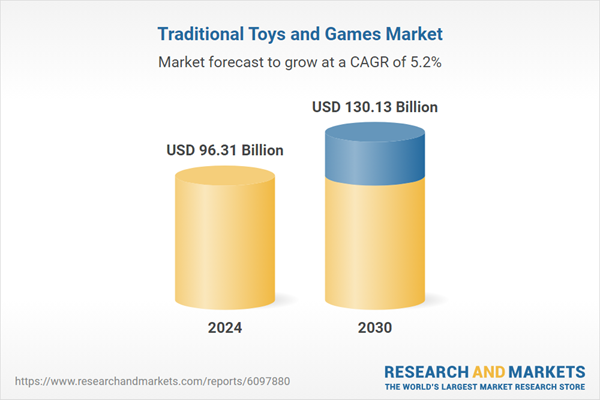Speak directly to the analyst to clarify any post sales queries you may have.
10% Free customizationThis report comes with 10% free customization, enabling you to add data that meets your specific business needs.
Key Market Drivers
Nostalgia and the Rise of the 'Kidult' Market
Nostalgia is a powerful force driving the growth of the traditional toys and games market, as adults increasingly revisit beloved childhood brands and characters. Toys from past decades - such as Care Bears, Tamagotchi, and Sylvanian Families - are being reintroduced and embraced by adult consumers seeking comfort and emotional connection. This “kidult” demographic is playing a larger role in toy sales, contributing to the resurgence of classic products and collectibles. Social media platforms further amplify this trend by building online communities and normalizing adult toy collecting, turning what was once niche behavior into a mainstream cultural phenomenon.Key Market Challenges
Competition from Digital Entertainment
A key challenge for the traditional toys and games market is the growing competition from digital devices and platforms. With the widespread adoption of smartphones, tablets, and video games, children are increasingly drawn to interactive digital experiences. These platforms often offer more dynamic, personalized content than physical toys. Studies show that in many developed nations, children now spend an average of 7-8 hours daily on screens, reducing time available for physical play. This shift is prompting toy manufacturers to explore hybrid solutions that integrate digital features into physical products. While AR, app-connected toys, and smart educational games offer some solutions, striking the right balance between physical engagement and digital innovation remains a complex challenge for the industry.Key Market Trends
The Surge of Collectible Blind Boxes
Collectible blind boxes have emerged as a major trend in the traditional toys and games space, combining surprise elements with the thrill of collecting. Brands like Pop Mart have gained widespread popularity with their mystery-box approach, attracting consumers - particularly Gen Z and millennials - who value novelty and exclusivity. The format encourages repeat purchases and collection-building, contributing to brand loyalty and viral engagement. Pop Mart, for instance, doubled its 2024 sales to USD 1.8 billion and now commands a market valuation of USD 38 billion, surpassing traditional toymakers such as Mattel and Hasbro.Integration of Technology into Traditional Play
Technological innovation is reshaping traditional play by blending physical toys with smart features such as augmented reality (AR), virtual reality (VR), and artificial intelligence (AI). These tech-enhanced toys offer interactive, immersive experiences that appeal to today’s digitally native children. AR-enabled toys, for example, can project digital animations over physical components, turning standard playtime into engaging adventures. This integration is allowing traditional toys to evolve with modern preferences, ensuring continued relevance and expanding their educational and entertainment potential.Key Market Players
- Dream International Limited
- Hasbro, Inc.
- Jakks Pacific Inc.
- Mattel, Inc.
- Lego A/S
- BANDAI NAMCO Holdings Inc.
- LeapFrog Enterprises, Inc.
- Spin Master Corp
- Tomy Co., Ltd.
- Playmates Toys Limited
Report Scope:
In this report, the Global Traditional Toys and Games Market has been segmented into the following categories, in addition to the industry trends which have also been detailed below:Traditional Toys and Games Market, By Product Type:
- Outdoor & Sports Toys
- Construction Sets
- Dolls & Plush Toys
- Vehicles Toys
- Others
Traditional Toys and Games Market, By Sales Channel:
- Supermarkets/Hypermarkets
- Specialty Stores
- Online
- Others
Traditional Toys and Games Market, By Region:
- North America
- United States
- Canada
- Mexico
- Europe
- France
- United Kingdom
- Italy
- Germany
- Spain
- Asia-Pacific
- China
- Japan
- India
- South Korea
- Indonesia
- South America
- Argentina
- Colombia
- Brazil
- Middle East & Africa
- South Africa
- Saudi Arabia
- UAE
- Turkey
Competitive Landscape
Company Profiles: Detailed analysis of the major companies present in the Global Traditional Toys and Games Market.Available Customizations:
With the given market data, the publisher offers customizations according to a company's specific needs. The following customization options are available for the report.Company Information
- Detailed analysis and profiling of additional market players (up to five).
This product will be delivered within 1-3 business days.
Table of Contents
Companies Mentioned
- Dream International Limited
- Hasbro, Inc.
- Jakks Pacific Inc.
- Mattel, Inc.
- Lego A/S
- BANDAI NAMCO Holdings Inc.
- LeapFrog Enterprises, Inc.
- Spin Master Corp
- Tomy Co., Ltd.
- Playmates Toys Limited
Table Information
| Report Attribute | Details |
|---|---|
| No. of Pages | 181 |
| Published | June 2025 |
| Forecast Period | 2024 - 2030 |
| Estimated Market Value ( USD | $ 96.31 Billion |
| Forecasted Market Value ( USD | $ 130.13 Billion |
| Compound Annual Growth Rate | 5.1% |
| Regions Covered | Global |
| No. of Companies Mentioned | 10 |









